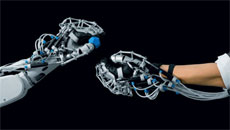The cup of your favourite green tea is full of health benefits and now researchers have found that an active compound in green tea also reduces the risk of pancreatic cancer.
In lab research, EGCG, the active biologic constituent in green tea, changed the metabolism of pancreatic cancer cells by suppressing the expression of the LDHA enzyme associated with cancer.
The researchers also found an enzyme inhibitor, oxamate - known to reduce LDHA activity - operated in the same manner: It also disrupted the metabolic system of pancreatic cancer cells.
"This study will open the door to a whole new area of cancer research and help us understand how other foods can prevent cancer or slow the growth of cancerous cells," said Wai-Nang Lee, a lead researcher with Los Angeles Biomedical Research Institute (LA BioMed).
Using sophisticated metabolic profiling methods, the researchers found EGCG disrupted the balance of "flux" throughout the cellular metabolic network.
Flux is the rate of turnover of molecules through a metabolic pathway.
The researchers found the EGCG disrupted this balance in the same manner that oxamate, a known LDHA inhibitor did.
"Both EGCG and oxamate reduced the risk of cancer by suppressing the activity of LDHA, a critical enzyme in cancer metabolism, thereby disrupting the balance in the cancer cells metabolic functions," Lee explained.
The study was published online in the journal Metabolomics.

